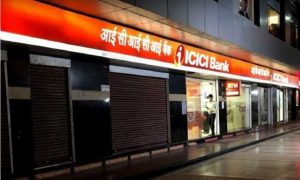Sri Lanka’s economic crisis resulted largely from excessive borrowing on projects that did not generate revenue.
Sri Lankans began voting Saturday in a presidential election that will determine the course of the country’s recovery from its worst economic crisis and resulting political upheaval.
Read More: Donald Trump To Meet PM Modi During His US Visit, Says ‘He Is A Fantastic Man’
The election, contested by 38 candidates, is largely a three-way race among incumbent liberal President Ranil Wickremesinghe, Marxist-leaning lawmaker Anura Kumara Dissanayake, and opposition leader Sajith Premadasa.
There are 17 million eligible voters, and final results are expected Sunday.
The results will show whether Sri Lankans approve of Wickremesinghe’s leadership over the country’s fragile recovery, including restructuring its debt under an International Monetary Fund program after it defaulted in 2022.
The government announced Thursday that it passed the final hurdle in debt restructuring by reaching an agreement in principle with private bond holders.
Sri Lanka’s local and foreign debt totaled $83 billion at the time it defaulted, and the government says it has now restructured more than $17 billion.
Despite a significant improvement in key economic figures, Sri Lankans are struggling under high taxes and living costs.
Both Premadasa and Dissanayake say they will renegotiate the IMF deal to make austerity measures more bearable. Wickremesinghe has warned that any move to alter the basics of the agreement could delay the release of a fourth tranche of nearly $3 billion in assistance pledged by the IMF that’s crucial to maintaining stability.
Read More: PM Modi’s Mega Community Event In US: Preparations Underway At Nassau Coliseum In New York | Watch
Sri Lanka’s economic crisis resulted largely from excessive borrowing on projects that did not generate revenue. The impact of the COVID-19 pandemic and the government’s insistence on using scarce foreign reserves to prop up the currency, the rupee, contributed to the economy’s free fall.
The economic collapse brought a severe shortage of essentials such as medicine, food, cooking gas and fuel, with people spending days waiting in line to obtain them. It led to rioting in which protesters took over key buildings including the president’s house, his office and the prime minister’s office, forcing then-President Gotabaya Rajapaksa to flee the country and resign.
Wickremesinghe was elected by a parliamentary vote in July 2022 to cover the remainder of Rajapaksa’s five-year term. Now, Wickremesinghe is seeking another term to strengthen the gains.
However, many people accuse him of protecting members of the Rajapaksa family, whom they blame for the economic crisis.
Wickremesinghe, who was the only member of his party in Parliament, was elected mainly with the votes of Rajapaksa loyalists. They also supported him as members of his Cabinet and in voting for the reforms he proposed.





































